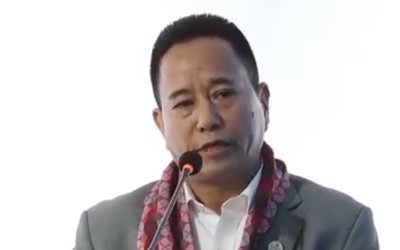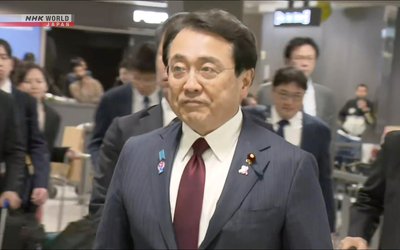More on News





It is an irony for Nepal, which is said to have the potentiality to generate 83,000 MW of hydroelectricity, that its citizens do without power for as many as 14 hours a day. Lacking required investment and proper policies, the country now produces only about 800 MW of electricity. Without foreign investment, we don’t seem like we can get rid of such a perennial problem.
In this context, two things are important for discussion here. The first is about the provisions in the Electricity Bill, 2009 and Electricity Regulation Commission Bill, 2009. They had been brought to the Parliament on 27 March, 2009. The second one is the delay in passing these bills.
Under the provisions of the Electricity Bill, 2009, license holding is the main issue and it is compulsory for the purpose of production, supply, distribution and commercialization of electricity and survey or physical studies of such purposes. For this purpose, a person can apply for the license of a project of less than 100KW and only an organized company is permitted to develop bigger projects. However, no license is needed for less than 3MW projects. Approval from designated authority will be sufficient for the small schemes.
Periods of license validity are maximum 5 years for survey, 35 years for production and maximum 25 years for supply, distribution and commercialization. Except for the production license, all others are renewable. Besides this, provisions also relate to selling, handing over and dismissing licenses. This Bill has opened the ways to invest in hydropower for national or foreign, public or private, single or joint venture companies. The investors will be exempted from VAT on import and export of the equipments used for the hydropower projects throughout the construction period. The foreign advisers and workers will get the facilities for customs duty, free visa, foreign currency exchange besides other things provided by the statute. The conditions of exempting tax and other facilities will be constant during the validation of license. If electricity is produced for commercial purpose within 13 April, 2019, income tax for seven years will be waived and for another 3 years, only half the income tax will be imposed.
Nepal government can provide subsidies for electricity production in Rural Areas for up to 1000KW Projects. The government will also provide 12% of the royalty for the related district development committee and 38% for the other district development committees of that Region from where the government gets the royalty. This bill has also guaranteed not to nationalize property possessed by the investors. The government will help to displace anybody from his land or property, if that is needed in the course of establishing projects. But such persons should reasonably be compensated. Nepal government has secured the right on itself for producing and developing electricity and making contract with other license holders for this purpose. Electric energy has been regarded as the prioritized industry and facilities have been provided accordingly. There is also a provision of one window facility provider committee which will provide all facilities from one window for the establishment of projects coordinating the whole different institutions and organizations of the government.
Similarly, the Electricity Regulation Commission Bill, 2009 has been brought simultaneously to complement the electricity bill and to establish a commission to regularize the electricity bill. The main functions of the commission are fixing fees, technical managements, preserving the interests of consumers, organizational capability building, recommendation and suggestion for policy making, monitoring and supervision and settlements of disputes.
The second aspect has to do with the delay in passing these bills. Among the causes, the first one is technical, in which, section wise discussion of all bills have taken place only in the legislative committee, with the legislative function of the Parliament. So, there seems to be some workload that a lot of bills are pending in the committee. To some extent, the transitional period and unstable governments are also responsible for this. Four ministers have been changed since the bills were introduced in the parliament.
The main problem seems to have been debates on several issues, for example, 142 amendments, most of them related to institutional or procedural provisions. The core policy based debates comprise these questions. What is the electricity production for service or commercialization? What should be the policy, functions and roles of the government about involvement in production and development of electricity and hydropower? To what extent, should the rights of hydropower resources be vested in the local communities? To what extent, should the private sector and local level communities be involved in this sector? Is Parliament's consent needed or not in establishing Hydropower Projects near National Borders with a view to other sensitivities? These issues are mainly causing the delay in making decisions.
However, these bills are very important for economic development and growth and to relieve people from the power load shedding. The electricity bill introduced into the House, in its original form, seems liberal and based on market economy. To some extent, it looks friendly towards attracting foreign investment. Many private companies or NGOs are looking forward to its approval soon. Local communities are also interested because they have a role in taking decisions and running community based projects.
In conclusion, discussions in the committee have been going on for a long time but no decision has been reached yet. The Committee and its subcommittee have met for 11 and 8 times respectively within 3 years since the bills were submitted to the Parliament. Issues coming to the parliament are always debatable but it is necessary to develop a mechanism for consensus. The Parliament has the prerogative to amend bills but it had better taken decisions in reasonable times for the good of everyone.
Budhathoki is under-secretary at Constituemt Assembly Secretariat





